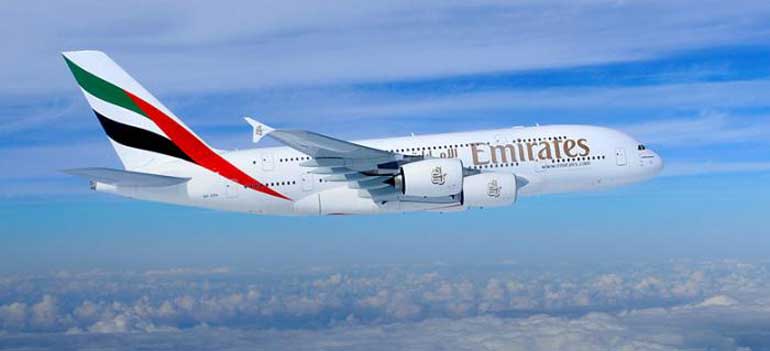Monday Feb 23, 2026
Monday Feb 23, 2026
Monday, 31 August 2015 00:00 - - {{hitsCtrl.values.hits}}

Reuters: Emirates Airline has said that Gulf airlines were not to blame for overcapacity on services between the United States and Dubai, rejecting comments at the weekend by US carrier Delta Air Lines.
Delta said that it was reducing flights between Atlanta and Dubai this winter, blaming overcapacity on US routes to the Middle East by subsidised and state-owned airlines, underscoring a trade row.
“Their (Delta’s) attempt to pin the blame on the ‘Gulf carrier threat’ is plainly a political play, or a thin excuse to prop up fares at a higher level by limiting capacity,” an Emirates spokesperson said in a statement.
Large US unions and airlines, led by Delta, charge that Gulf carriers Emirates, Etihad Airways and Qatar Airways have received $ 42 billion in subsidies from their governments in the past decade. They say this has allowed the Gulf airlines to start dumping capacity into the United States, driving down prices and pushing out competitors.
Gulf carriers have denied that they are subsidised and say poor customer service has caused US airlines to lose market share.
Emirates, citing US Department of Transportation data, said average seat loads during 2013-2014 on the Atlanta-Dubai route had been consistently above 85%, showing that consumer demand or overcapacity was not the issue.
Delta is the only airline offering direct flights between Atlanta and Dubai. It will reduce that service to four or five times a week from 1 October instead of daily. That will leave rival United Continental’s Washington-Dubai service as the only daily non-stop flight between the United States and Dubai on a US carrier this winter.
Emirates flies to nine US cities, including Washington DC, Dallas, New York and Houston, and said its average seat loads on these services was above 80%, proving customer demand.
The accusations of government subsidies, is part of a campaign by the American airlines to convince the Obama administration to alter Open Skies treaties with the Gulf countries. This is currently under review.
Gulf airlines have said it would be protectionist of the US government to tighten trade policies that have in the past benefited American airlines in the absence of large rivals.